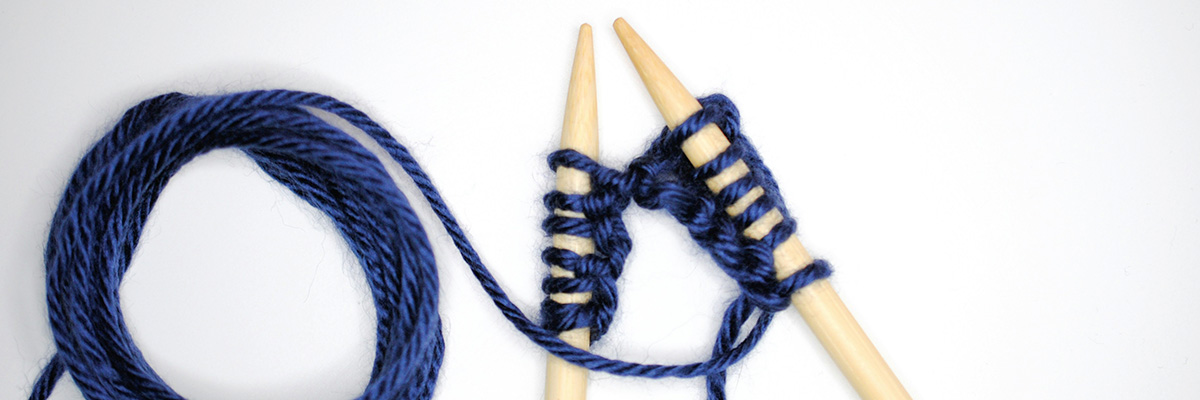The Mental Health Benefits of Using Knitting to Unwind
Anxiety, panic attacks, depression, chronic pain are all conditions of these modern times. Fortunately, needles and yarn can help reduce stress, pain, depression, and more. From helping many to give up smoking to lessening the impact of chronic pain, knitting is now considered a great therapy. Knitting can help lower anxiety, increase self-worth, and increase concentration.
In this article, we will delve into how knitting can serve as a powerful tool for unwinding and enhancing mental well-being.
How Knitting Can Reduce Stress
1. Meditative Practice: Knitting serves as a meditative practice, allowing individuals to center their focus on the present moment and release worries and stress. The repetitive motions involved in knitting promote relaxation and aid in lowering cortisol levels, the hormone linked to stress.
2. Inner Peace: Engaging in knitting can help individuals cultivate a sense of calm and inner peace, contributing positively to their mental health. By immersing themselves in the craft, individuals can create a tranquil space within themselves, fostering a peaceful mindset.
3. Distraction from Negative Thoughts: The intricate patterns and stitches in knitting offer a valuable distraction from negative thoughts. This diversion provides a healthy outlet for stress relief, enabling individuals to channel their energy into a creative and fulfilling activity.
Benefits of Knitting for Mental Well-being
1. Boosts Mood: Knitting has been shown to boost mood and promote feelings of happiness and contentment. The sense of accomplishment that comes with completing a project can elevate mood levels and enhance overall well-being.
2. Enhances Focus: The concentration required in knitting can improve focus and attention span. By honing in on the task at hand, individuals can sharpen their cognitive abilities and develop a greater sense of mindfulness.
3. Social Connection: Knitting can also foster social connection and community engagement. Joining knitting groups or attending workshops can provide opportunities for social interaction, reducing feelings of isolation and loneliness.
Tips for Using Knitting as a Therapeutic Tool
1. Set Aside Dedicated Time: Allocate specific time in your schedule for knitting to ensure that you prioritize self-care and relaxation. Creating a routine around knitting can help establish a sense of consistency and promote mental well-being.
2. Choose Relaxing Environments: Opt for peaceful and calming environments when engaging in knitting. Find a serene space where you can unwind and focus on the soothing motions of the craft.
3. Practice Mindfulness: Incorporate mindfulness techniques into your knitting practice by staying present and attentive to the sensations and movements involved. Mindful knitting can deepen the therapeutic benefits of the activity.
Choosing needles over Netflix can do wonders to promote cognitive function. Knitting therapy is worth considering because it’s accessible, low cost, and portable. After you have gone through the initial learning hurdles, crocheting and knitting becomes a rare therapy that lowers the heart rate, slows the onset of dementia, combats depression, and distracts from chronic pain. Research has shown that knitting can reduce the heart rate by 11 beats per minute.
FAQ
1. How can knitting reduce stress?
Knitting serves as a meditative practice, allowing individuals to center their focus on the present moment and release worries and stress. The repetitive motions involved in knitting promote relaxation and aid in lowering cortisol levels, the hormone linked to stress.
2. What are the benefits of knitting for mental well-being?
Knitting has been shown to boost mood and promote feelings of happiness and contentment. The sense of accomplishment that comes with completing a project can elevate mood levels and enhance overall well-being. Additionally, the concentration required in knitting can improve focus and attention span.
3. How can knitting be used as a therapeutic tool?
To use knitting as a therapeutic tool, it is recommended to set aside dedicated time in your schedule for knitting to prioritize self-care and relaxation. Choosing relaxing environments and practicing mindfulness techniques while knitting can deepen the therapeutic benefits of the activity.
4. Can knitting foster social connections?
Yes, knitting can foster social connection and community engagement. Joining knitting groups or attending workshops can provide opportunities for social interaction, reducing feelings of isolation and loneliness.






